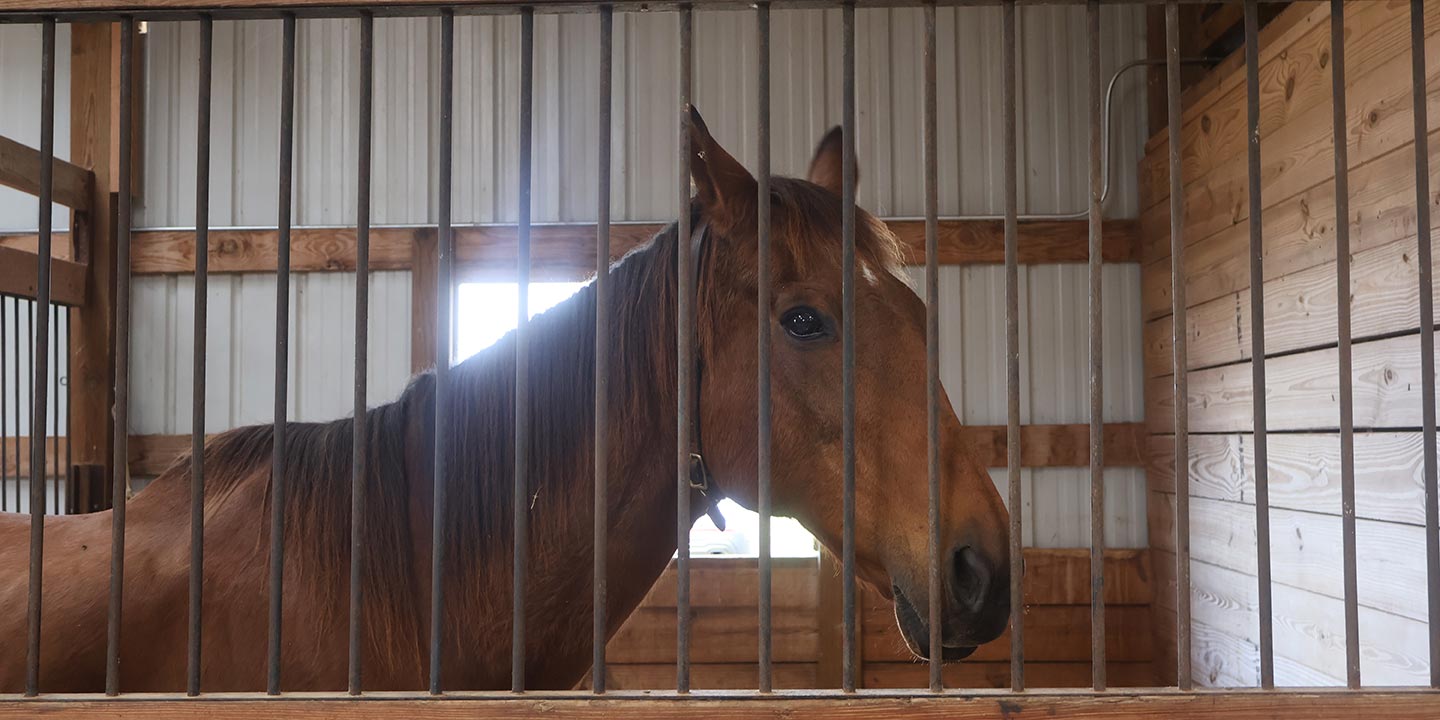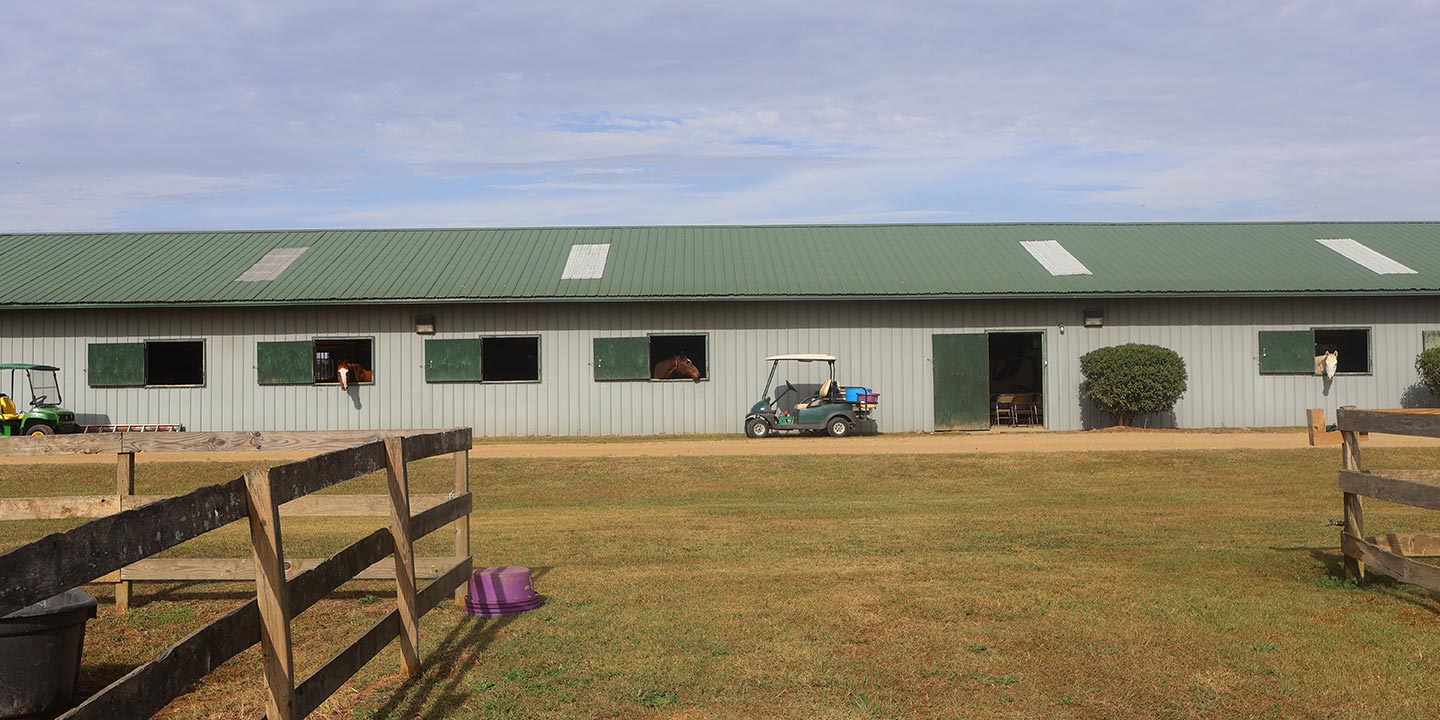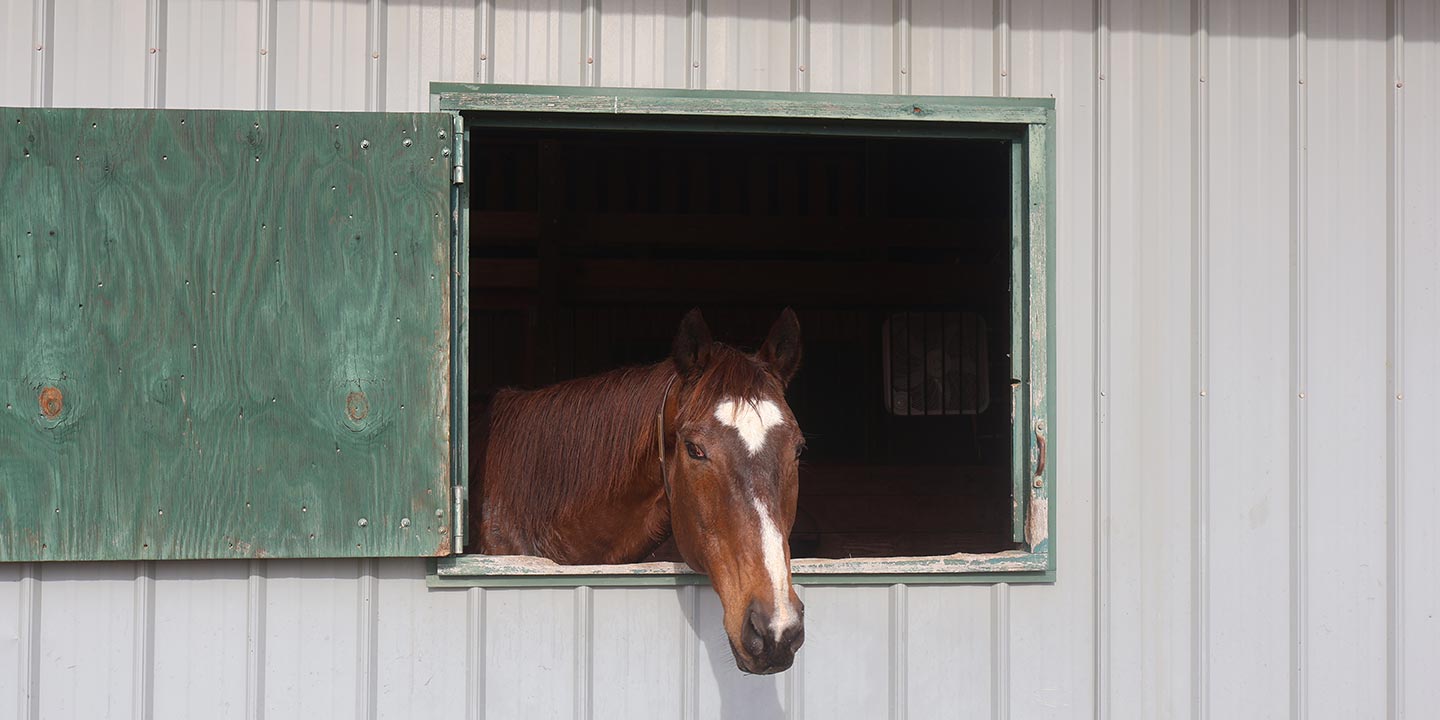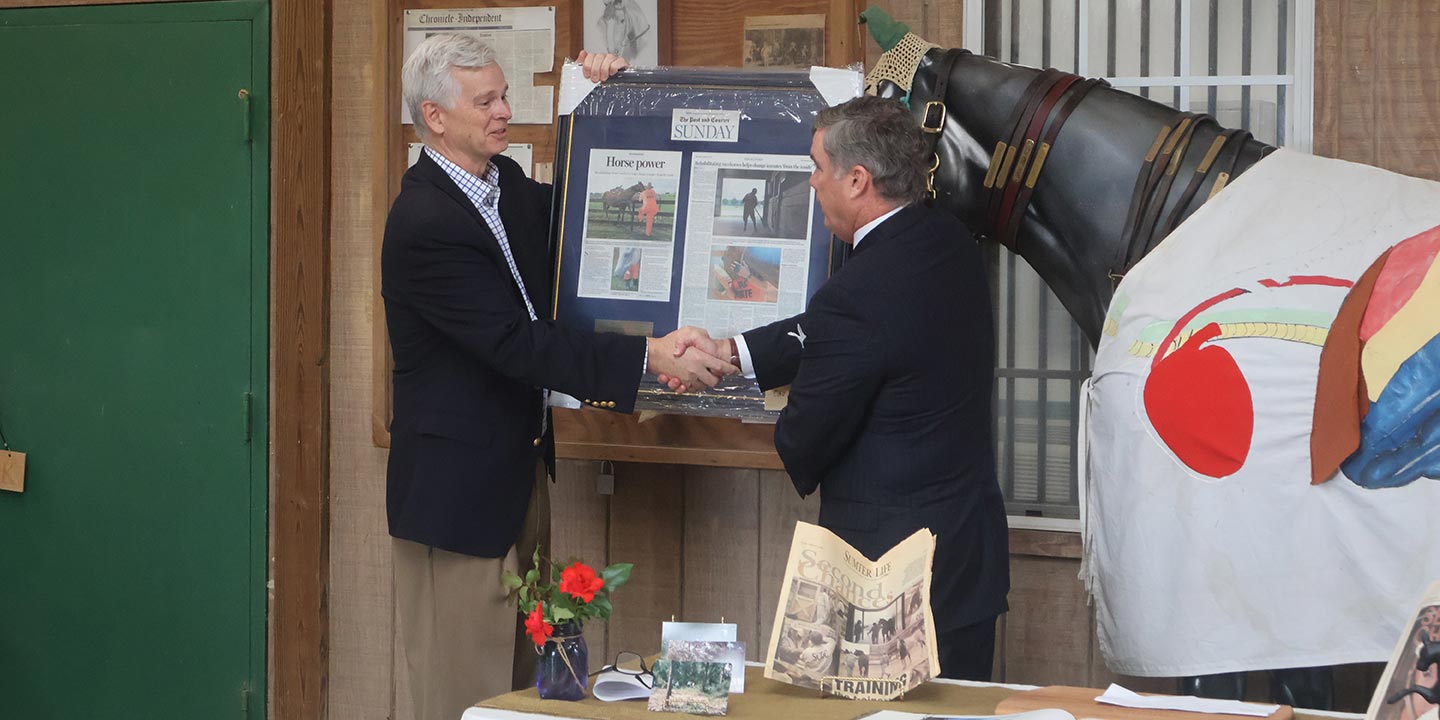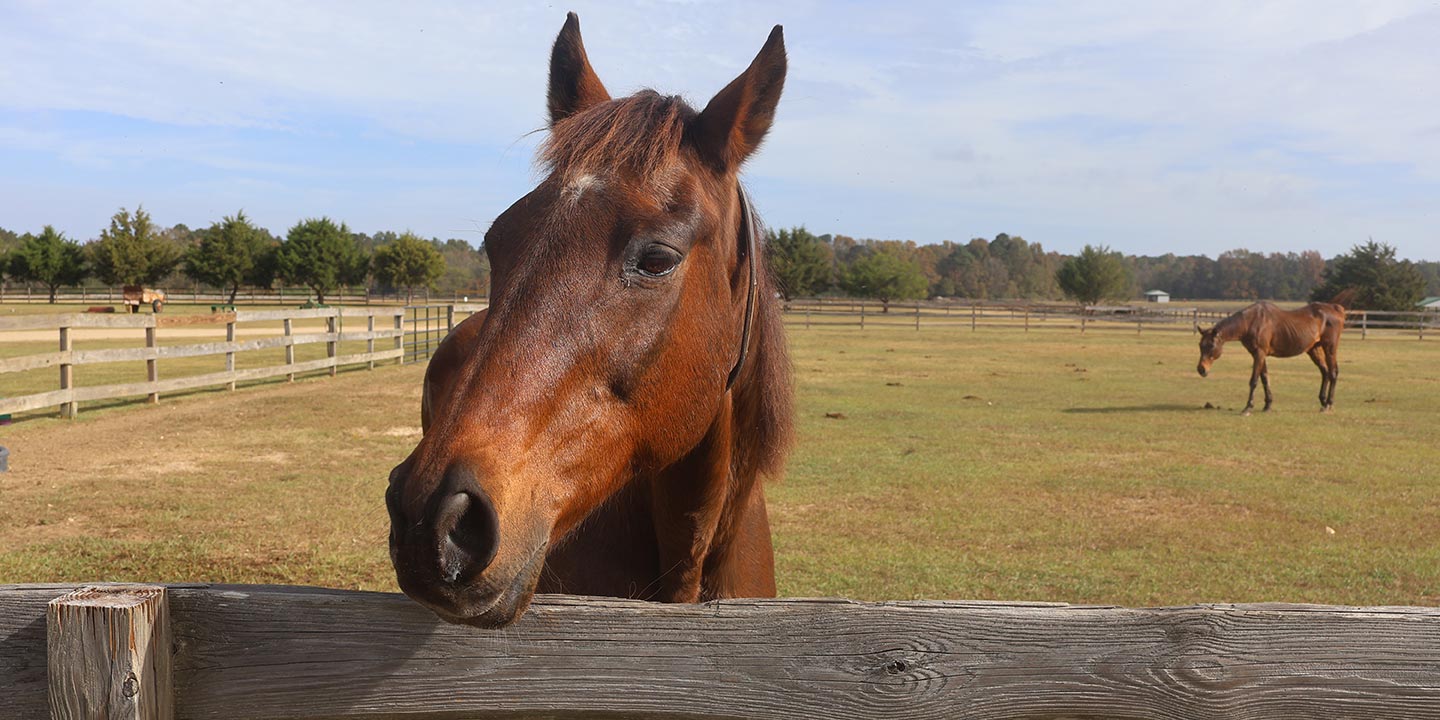An inmate walks between horse stalls at Seabiscuit Stables. (Photos by Annie Poteat/Carolina News & Reporter)
REMBERT – Artie spent 16 years at another facility before being transferred to Wateree River Correctional Institution in 2022.
He was used to a much more “aggressive” high-security environment, but Wateree is a medium-security South Carolina prison.
That didn’t stop him from feeling on edge when he first arrived.
Artie remembers a day when other inmates were being aggressive, making him uneasy. A Wateree staff member told him to go see the horses who live on the site and try to calm down.
“They asked me, ‘Are you afraid of horses?’ ‘No.’ ‘Are you afraid of big animals?’ ‘No,’ ” Artie said. “I wasn’t afraid of them. But I respect them because of their size and the power they have. But being afraid of them – I was never afraid of them. I just respect what they could do.”
Artie describes himself as a city boy. He knew nothing about horses. But once he was in the stables he felt peace. He met his favorite horse, Crypto Disco, that day.
Most inmates have to apply to Wateree’s Second Chances program before they can work in the stables.
State Department of Corrections Director Bryan Stirling has supported the initiative for the past 10 years.
The program helps inmates learn compassion and sympathy, Stirling said.
“They have to apply for the program and show that they want to do it,” Stirling said. “Some wash out. Some come and say this is not for me. And some stand up and say this is for me. ‘I want the barn to work, I want to change not only my life, but I want to change my family’s life.’”
The Thoroughbred Retirement Foundation has partnered with eight correctional institutions across the country as part of the non-profit program called Second Chances. It provides retired racehorses to Wateree as part of the many programs offered for inmate rehabilitation. It works because South Carolina has an active equestrian industry that inmates can be hired into.
Maggie Sweet is executive director of the Thoroughbred Retirement Foundation.
“I think the name ‘Second Chances’ encapsulates everything,” Sweet said. “I mean, it’s a second chance for the horse, a second career, a second location. But I think it also just teaches people that you can’t give up on somebody who has made a mistake.”
Stirling thinks it’s an important public safety program.
“I think programs and prisons help rehabilitate people, which makes society safer, saves tax dollars, so folks don’t return to prison for crimes that they’re going to commit after they’ve learned hard work,” he said.
Most inmates come from a harsh background many people will never understand, Sweet said.
“The most moving part is when you hear about the interpersonal relationships they have with the horses and the interactions they have, … to hear somebody talk about how the horse is the first creature to give them that love and show them the lack of judgment,” she said. “And that’s extremely moving to me.”
Ann Hagan recently returned to Wateree for the first time in 15 years, this time without her late husband, John Carmichael, who passed in January of this year.
Carmichael was Wateree’s warden in 2004 when he read a New York Times story about the program at other prisons. Second Chances now has been at the prison for 20 years.
Hagan said Carmichael considered bringing Second Chances to Wateree be one of his greatest achievements.
“I got to watch him (plan this) with the others – to be able to help this program come into fruition, which means we have probably hundreds of people that are leaving prison be able to live useful lives, certainly to support themselves, support their families, and do good instead of going back to crime,” she said.
Now, the stables and nearby fields house 33 horses who are fed, cared for and cleaned by inmates. Horses can be adopted for a nominal fee by members of the public after an interview process with prison officials.
Artie gets to spend most of his day with Crypto Disco in the stables, a horse he said watches over him.
“There are men that want to come through it that need it,” he said. “A lot of them don’t understand that they need it because they don’t give it time. But those who do give it time like myself, we need it. It helps us.”
An inmate named Artie interacts with his favorite horse, Crypto Disco.
A horse leans out its window to look at the activity at Wateree River Correctional Institution.
Inmates read a board in the stables with news articles about horse rehabilitation.
A wooden plaque shows the correctional institutions that partner with the Thoroughbred Retirement Foundation.
ABOUT THE JOURNALISTS
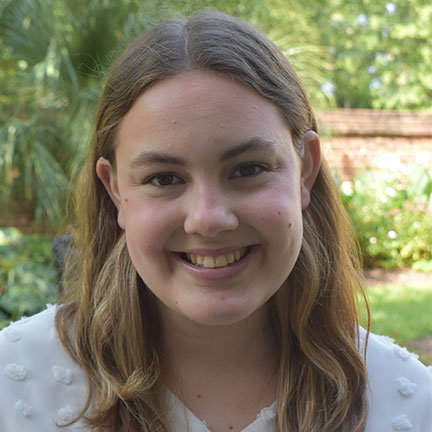
Annie Poteat
Poteat is a journalism major at USC, concentrating in sports media. She interned with GamecockCentral.com and has worked as an assistant sports editor and managing editor for the Daily Gamecock. Poteat now is an intern with Gamecock Athletic’s Communications Department and hopes to be a sports information director upon graduation.
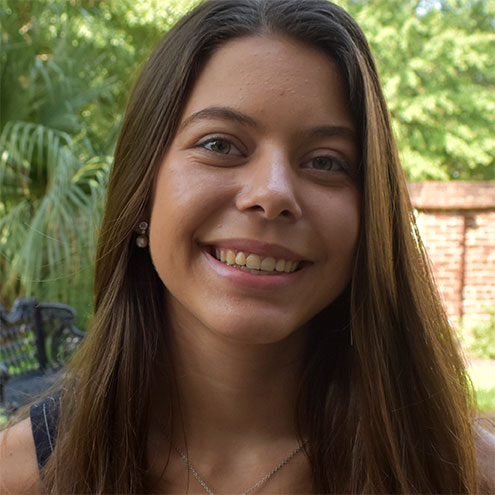
Cassie Cornwell
Cornwell is a junior journalism major at USC from Gilbert, S.C. She has interned at the nonprofit Homeless No More and has written news stories for The Daily Gamecock. She wants to pursue investigative journalism, in South Carolina if possible.







